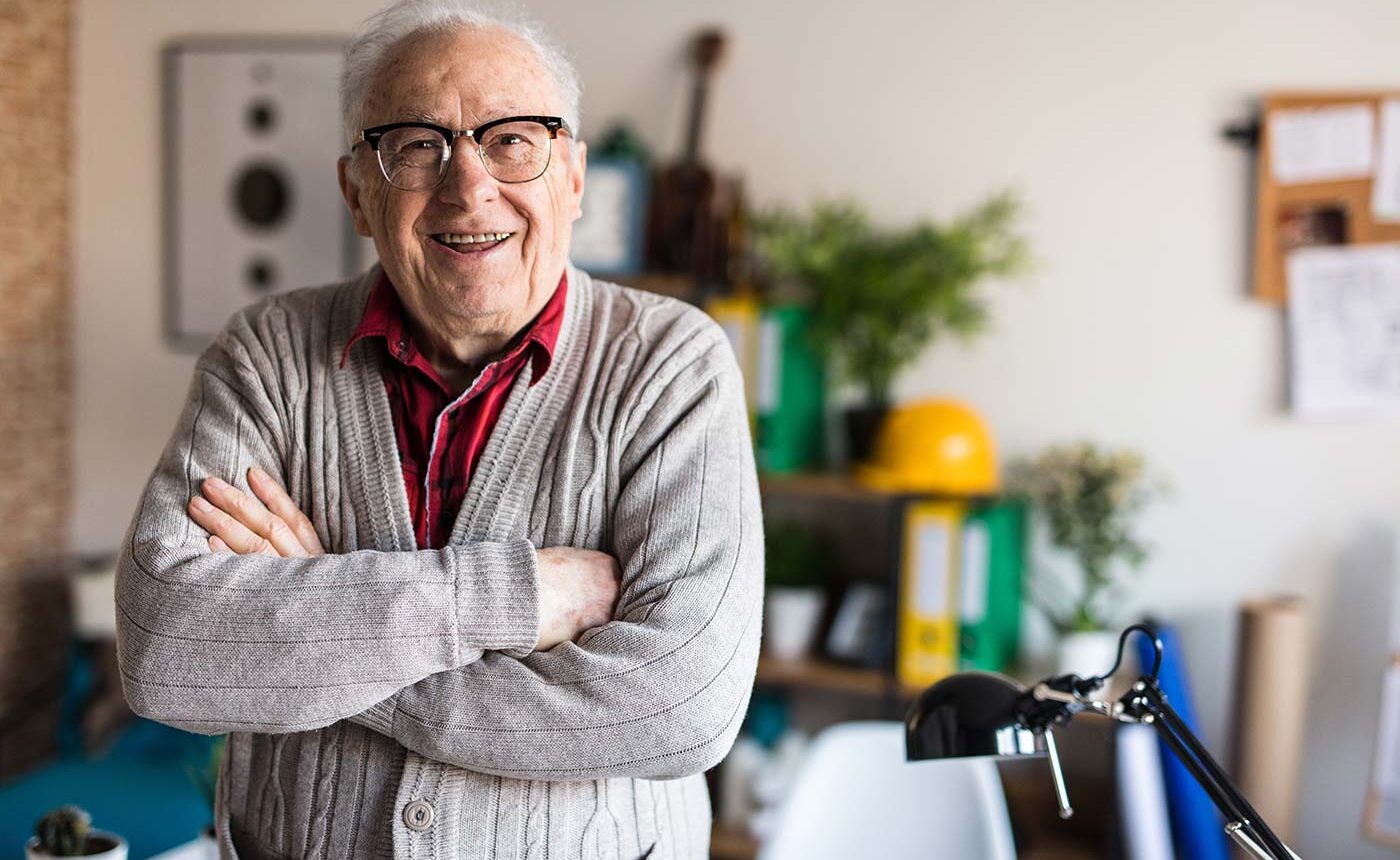Carlsbad Will Contests Lawyer
Throughout life, people help plan for their family’s safety, security, and well-being while ensuring they have what they need to feel supported and successful. As life moves forward, the reality sets in that one day, a person may no longer be available to them, and that can cause worry about how their family will be cared for in the future. Estate planning, particularly wills, is an important way to find peace by deciding how assets will be distributed in the way a person chooses and to the people they choose to leave those assets. Estate planning can be complicated, and if not done properly, it can cause additional problems.
Probate and trust litigation attorney Paul V.L. Campo understands that even with a will, a person’s final wishes aren’t always honored in the way they want. Wills can be contested for a number of reasons. Whether you are in charge of the administration of the will, you are a beneficiary, or you feel the will is invalid, you should seek the help of a trusted estate planning attorney who can help ensure that your loved one’s final wishes are honored in the way they intended. Our team knows how delicate these cases can be, and we use our knowledge and experience to help your case reach the right resolution.
The Importance of a Will
A will is a chance for a person to declare their final wishes on what happens to their assets when they pass. Without a will, courts will use state law to determine how those assets are divided. Often, however, the way courts divide assets will not be consistent with the way a person would have wished. Clear and well-written wills will make provisions for:
- Property. This includes real estate, vehicles, personal property, artwork, and other physical possessions that have been accumulated.
- Financial assets. A person’s money is not often in just one place, and a will allows those finances to be divided. This includes assets in bank accounts, stocks, bonds, retirement, and more.
- Child guardianship. If a person has children, a will can allow for guardianship to be established if they are a single parent or in the event that both parents pass. This includes pets as well.
- Executor responsibilities. A will should have an executor who oversees the distribution of the assets in the will. This person is ultimately responsible for ensuring the will is executed as written.
It is important that as life changes occur prior to death, the document is reviewed and kept up-to-date to ensure there are no holes in the will that could be grounds for contesting it later. There are different kinds of wills, and knowing which one is right for an estate can be determined with an estate planning lawyer.
Contesting a Will
Most wills are successfully executed. However, there is a small percentage that is contested for a number of reasons. When a person passes, they are unable to speak for themselves, so the will serves that purpose. Its design needs to be done in such a way that the wishes are clear and leave little room for challenge. Most courts closely adhere to the contents of a will, but beneficiaries may challenge the contents or the decisions of the court.
In California, spouses of the deceased often raise the most contentions and are usually successful. If, for example, a spouse leaves the other out of their will for any reason or attempts to give property to a different beneficiary, the spouse may be able to claim California’s community property adherence as grounds to contest the will. If they are successful, the will is voided or invalidated. This results in the court making decisions as if the will had never existed.
Persons Who Can Contest a Will
There are only certain individuals that can bring a legal contest to a will which include children, a spouse, creditors, or other parties who feel there are valid claims against the administration of the will. These individuals are known as “interested persons.” This means that your cousin could not contest a will on your behalf because you felt you were left out of your mother’s will. They do not have a legal right to file a contest.
Others who can contest a will are those that are intestate heirs. These individuals are the beneficiaries of a prior will and are then a beneficiary of a subsequent will. These individuals can contest the will because they are named a beneficiary, or they are not named but stand to lose or gain depending on the validity of the will after contesting it.
Generally speaking, those who can contest a will must fit into one of three categories:
- They are named in the will
- They should have been named in the will
- They would have inherited something of value if the deceased did not leave a will
Children under the age of 18, while falling into one of the categories, may not challenge a will until they are of legal age.
Some wills include “no contest” clauses which state that a beneficiary must either receive what was left to them or, if they continue with the contest, risk the loss of everything they may have received. These clauses, however, are seldom enforced, and the law will support a contest so long as there is a valid reason to present one.
Grounds for Contesting a Will
Contesting a will is more than just disagreeing with what a person is receiving. Contests can’t be filed just because a benefactor feels they are entitled to more. There are four ways California recognizes as grounds to contest a will.
- Testamentary capacity. The testator of the will needs to create the will of sound mind and body. This means they need to possess the capability to make decisions and that they were not incapacitated in any way. There must be a belief that the testator understands the decisions they are making and the consequences of those decisions. Under these types of contests, attorneys who prepare the will could be called as witnesses to testify whether the person possessed the capacity to make decisions.
- Suspicion of undue influence. During the preparation or execution of a will, there must not be any coercion or intentional fraud that could impact the final decisions contained within the will. The testator must create the will of their own cognizance and be free from any manipulation. It must be made of their own free will. This can happen in many ways, but a common example is if an adult child is more present in their parent’s life due to proximity or any other reason. If that adult child pressures the parent to make decisions or manipulates them in any way to provide a significantly larger share of assets to them over other siblings, it could be argued that the will was created under influence. This could then invalidate the will.
- Improperly signed. Any will that is not signed is open to contest and should be. Wills must be in writing in California and authorized with the signature of the testator and two disinterested witnesses. These witnesses are not named in the will and do not stand to gain anything from the will’s execution. If a person is unable to sign their will, there are parameters that allow them to make an “X” that can serve as their valid signature. In other instances, a disinterested party may sign the will on behalf of the testator, but they may not then be also counted as a witness.
- Fraudulent activity. Fraud occurs during the preparation of the will. This can occur through the inclusion of terms or wishes that the testator did not intend. It can also occur if they are tricked into signing the will without knowing the full contents of it. If, for example, someone asked a testator to sign a document but, unknown to the testator, had them sign a will, that would be considered fraud.
These types of behaviors make the reliance on witnesses that much more important for successfully executing the wishes of the will.
Proof in a Will Contest
As with any legal matter, there exists the burden of proof, and this stands true for all will contests in California. The proof must come from the person who is contesting the will. Depending on which of the above actions occurred that prompted the contest, evidence must be shown to support the accusation. In this regard, those filing a will contest can provide medical documentation, witness testimony, or other supporting documents that could prove the invalidation of the will. Unfortunately, in cases of fraud or coercion, witness testimony is often the most compelling evidence, but not all testimony is reliable, particularly the more time that passes.
Statute of Limitations for Contesting a Will
California does not recognize a will as valid until it has been certified through the probate litigation process. However, contesting a will cannot happen until an executor of the will presents it to the court.
The will is submitted with a Petition for Probate, at which point a contest can be filed. The filing serves as an official objection to the petition and is then filed before it is sent to probate. Once notification is sent that the petition has been filed, you will want to contest the will at the initial probate hearing through an appearance.
This is the opportunity to file your written objection to the will. If, however, you are unable to contest the will at this point in the process and the will is deemed valid, you will then have an additional opportunity to contest the will. You will have 120 days from the time of the opening of the probate to request the court to revoke the admission of the will.
To settle a dispute, it could take months or years. That means the final wishes of the person who passed are delayed, and the beneficiaries must wait until it’s settled.
Costs of Challenging a Will
The cost to challenge a will in California can vary depending on the circumstances of the case. The complexity of the case and the willingness of those involved will determine how quickly a resolution is reached and how much litigation is necessary. On average, however, the costs to contest a will in California will cost between $5,000 and $10,000. This is an average that could see costs significantly higher.
A keynote on payment for contesting a will is that most of the costs are paid for by the estate. This will significantly decrease any financial amount that beneficiaries could receive. Attorney fees and court costs may come out of pocket first until the matter has been settled and the estate has been freed up to reimburse for the expenses.
Will Contests Attorney
Wills are a complicated matter that help to speak for someone who has passed. Their voice resonates through the words of the document that tells others how they wish to complete one more act of security, support, and connection with their family and friends that remain behind. However, situations arise that cause questions about the validity of those words. From unsigned documents to coercion to undue influence to improper execution of the will, beneficiaries and the one who has passed deserve to know the terms of the will were upheld as intended.
If you feel the will of a loved one is not valid or is being handled improperly by those left in charge, it is important to have a knowledgeable and experienced attorney on your side that can advocate for you. Paul V.L. Campo and his team are ready to provide you with compassionate but aggressive representation. We know that the timing to contest a will is important to successfully challenge the validity. If you have questions about a loved one’s will or you need help contesting their will, contact our offices today, and we can discuss your case.
Start Today
The best time to act was yesterday. The second best time is right now.
Office Location
Paul V. L. Campo Attorney At Law
316 South Melrose Drive
Suite 106
Vista, CA 92081
Phone: 760-639-1680
Fax: 760-639-1684
Map & Directions














